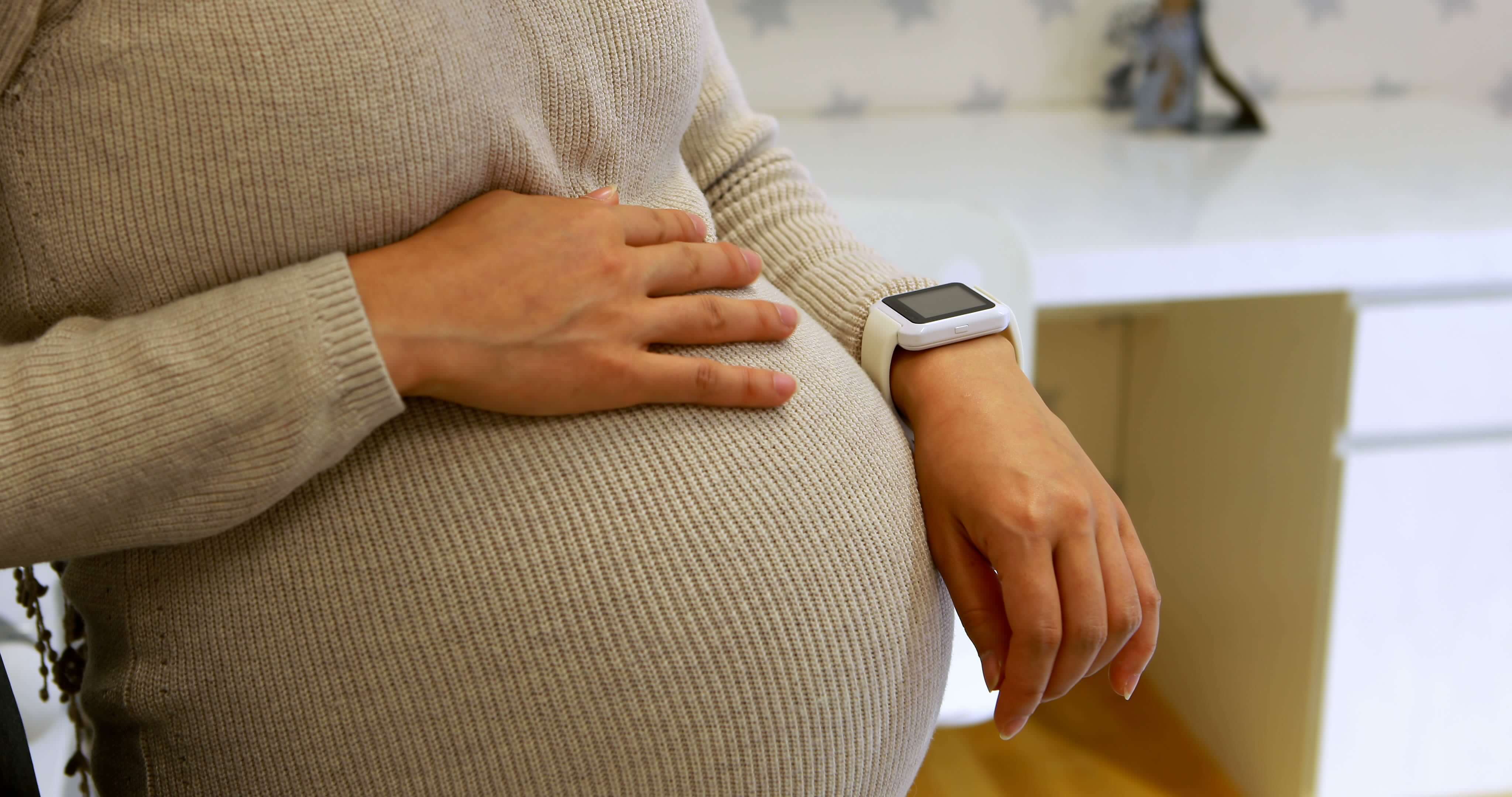Presumptive signs of pregnancy refers to signs and symptoms that resembling pregnancy signs.
They may be possible signs of pregnancy, but should be further investigated as they could have many other causes.
Significant hormonal changes take place during pregnancy, some women experience many of the signs of pregnancy, while others may have only a few.

Presumptive signs of pregnancy
1. Missed period
Missing a period is often the first sign of possible pregnancy.
However, some women experience light bleeding around the time of their expected period.
2. Nausea and vomiting
Morning sickness is a condition that affects more than half of all pregnant women.
Many women with morning sickness don’t just get symptoms in the morning but experience them throughout the whole day.
Morning sickness usually begins around the fourth to sixth week of pregnancy and may settle by week 12, although it can continue for longer or return at around 32 weeks.
3. Breast changes
During pregnancy, the breasts become fuller, swollen and tender.
These changes are similar to those you may have noticed in the few days before your period.
During pregnancy, the skin around the nipple becomes darker and the veins in the breast become more obvious.
4. Fatigue
Overwhelming tiredness is common in early pregnancy.
This is most likely caused by the massive increase in the progesterone level.
Your energy levels will probably rise again by around the fourth month of pregnancy when the placenta is well established.
Try to get some more sleep or rest when you can during this early stage.
5.Frequent urination
Pregnancy causes an increase in levels of body fluids and greater kidney efficiency.
The swelling uterus also presses against the bladder.
As a result, most women start experiencing more frequent urination within the first few weeks of becoming pregnant.
6.Food cravings
Cravings for certain foods are very common in pregnancy.
Especially for foods that provide energy and calcium, such as milk and other dairy products.
You may also notice a sudden distaste for foods you previously liked.
7.Backache
Back pain during pregnancy can affect more than 1 in 3 women.
This is usually due to loosening of ligaments and change in posture due to the growing pregnancy.
You can help reduce back pain during pregnancy by wearing flat heeled shoes.
Using chairs with good back support, avoiding lifting heavy objects, and doing gentle-exercise .
Exercising in water can reduce back pain in pregnancy.
8.Leg cramps
Leg cramps occur due to a build-up of acids that cause involuntary contractions of the affected muscles.
They are experienced by up to half of pregnant women, usually at night.
Leg cramps are more likely in the second and third trimesters
If you experience leg cramps, it is recommended that during an episode you:
Walk around.
Stretch and massage the affected muscle(s) to disperse the build-up of acids.
Apply a warm pack to the affected muscle(s).
If you find cramps troublesome, discuss with your doctor or midwife the option of taking magnesium lactate or citrate morning and evening.
9. Mood changes
Some newly pregnant women experience mood changes such as irritability.
Other pregnant women experience feelings of elation.
It is thought that the pregnancy hormones influence chemicals in the brain, causing mood changes.
10. Constipation
Constipation is a common problem in pregnancy that may be caused by pregnancy hormones.
That slowing your gastrointestinal movement, or by the pressure of your growing uterus on your rectum.
Exaggerated presumptive signs of pregnancy
When you are pregnant, you will have profound changes in your hormones.
This results in various pregnancy symptoms like frequent pee, sweating, etc.
With the case of a twin pregnancy woman, which leads to substantial hormonal change and more severe symptoms with morning sickness, crums, and even more.
This is why doctors suggest twin mothers be even more careful during the early pregnancy prediction.
You have to mote with the twin pregnancy symptoms week by week with more attention in case of any risk you must reach to the doctor immediately.
You must remember that you have more risk than a normal singleton parenting mother.
Do gentle, low impact exercise such as swimming, walking or yoga.
Treatment of constipation during pregnancy
If you experience constipation during pregnancy, you are advised to:
Eat 25 to 30 grams of fiber-rich foods each day, fibers really can help, they soften your stools so that they’re easier to pass.
Drink eight to 12 cups of water each day: You need more fluid than usual to support your pregnancy and to soften your stools.
Get 20 to 30 minutes of moderate exercise three times a week.
Try a different prenatal vitamin, the iron in your prenatal vitamin may be too much for your digestive system to handle.
Your provider can suggest another vitamin with less iron.

How soon can you take a pregnancy test?
Some tests are very sensitive and can show if you are pregnant before your period is due.
The reason you shouldn’t take a test too soon is that pregnancy tests work by measuring levels of HCG.
A hormone that is only present if you are pregnant.
The body only releases HCG if a fertilized egg attaches to the uterus in a process known as implantation.
Implantation usually happens around 10 days after conception, when the sperm fertilizes the egg.
Traces of HCG are present from 6 days after implantation.
But it typically takes 7–10 days after implantation for the body to build up enough HCG to show up on a test.
If you have an irregular cycle and don’t know when your period was due, it’s best to take the test at least 21 days after having unprotected sex.
You may receive an inaccurate result if you take the test too early in your cycle.
Summary
Presumptive signs of pregnancy include missed periods, nausea and vomiting, breast changes, tiredness and frequent urination.
Many of these presumptive signs of pregnancy can also be caused by other factors such as stress or illness.
If you suspect you may be pregnant, see your doctor.


You must be logged in to post a comment.